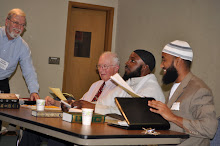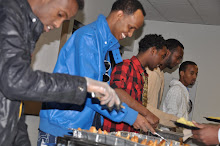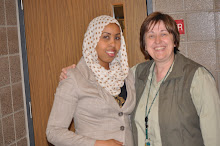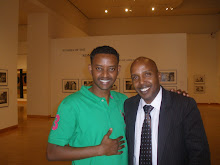Your turn, human rights office debate: Critics offered limited solutions
By Mike Landy • St. Cloud • September 19, 2009
Read Comments(17) RecommendPrint this pageE-mail this articleShare
Del.icio.usFacebookDiggRedditNewsvineBuzz up!TwitterAs a result of my participation in policymaking for 10 years in the city of St. Cloud, I feel compelled to address the two Your Turns published Sept. 12 focusing on the city’s human rights services.
One was “Department would help create community that is more inclusive” and the other was “We need to all work together.” The authors are associated with St. Cloud State University.
These articles expressed an abundance of negative sentiment about race relationships within our community, border on racism in and of themselves, and did little to demonstrate the need for a full-time human rights office as opposed to the city attorney and his staff functioning in that role.
The city is experiencing a funding crisis and efficiencies are necessary. The two articles limited their solution to a full-time human rights office and director.
Shouldn’t the most important justification be the result as opposed to the process and players along the way? I think it should. The commentaries missed the real issue as they never clearly shared their aspirations or end game, nor provided further alternatives.
During the past decade much has been done to educate the public about race and gender equality and law that prohibits discrimination. The city has been front and center and has accepted its responsibilities to do its part.
However, the city itself has not been the focal point on the educational front. Diversity education has primarily been carried out by numerous nonprofits and other groups. My hope is that all of this work will continue and be funded from nongovernmental sources as it should be. The sizable influx of Somali immigrants gives great cause to continue this work, not to mention the notion that the work is simply not complete.
The Your Turn “Department would help create community that is more inclusive” cites St. Cloud’s “sordid racial history.” It recounts the 1857 arrival of Mary Butler, a slave as an example. The 1857 example is not relevant in 2009 and does nothing to support a proposal for a stand-alone human rights office
Further, it cites two decade-old studies conducted by consultants Elsa Batica and Betty King to support the view that people of color do not feel welcome today in St. Cloud. The piece also cited a 2003 study to imply that today’s St. Cloud Police Department does racial profiling.
The other piece, “We all need to work together,” states St. Cloud must maintain a “full-time human rights office, with a full-time human rights director period.”
It would be unfair to suggest that there is no racism in the city. However, it would be just as unfair to discuss the racism issue without commenting about the hard work expended and improvements made by a number of entities and individuals. Honestly, both communities have come a great distance fully realizing we certainly need to travel on.
However, it is no service to the community for these two authors to suggest that reassigning the duties and responsibilities from the former human rights director to legal staff within the city attorney’s office equates to abandoning the cause. It does not. It solely demonstrates the continuation of an important priority more efficiently.
Tough economic circumstances are facing the mayor and the City Council, and I applaud their willingness to identify better and more efficient ways to serve us as city residents.
This is the opinion of St. Cloud resident Mike Landy.
Tuesday, September 29, 2009
Create CommUNITY funds health worker

Create CommUNITY funds health worker
By Frank Lee • fclee@stcloudtimes.com • September 24, 2009
Read Comments(174) Recommend(5)Print this pageE-mail this articleShare
Del.icio.usFacebookDiggRedditNewsvineBuzz up!TwitterAt a time when access to health care in the United States has never been more hotly debated, Somalis living in Central Minnesota will continue to have one of their own to help them with it.
Create CommUNITY has awarded $20,000 to continue the Community Health Worker project in St. Cloud, which will allow Fartun Hussein, a Somali-American, to continue to serve as the community health worker for the Somali community in Central Minnesota until Jan. 15.
"It's a real critical need in that community, and we're hoping that it will be a model that we can replicate in other communities of color," said Hedy Tripp, Create CommUNITY coordinator.
Hussein has helped Somalis enroll in health care coverage, renew their existing coverage, schedule annual checkups and get prescriptions filled in the past year.
The Minnesota International Health Volunteers implemented the pilot project in June 2008, with one of the goals of the project being the education of health care professionals in the St. Cloud area about Somali culture, myths and beliefs about health.
Somali community
"We have a great health care system in Minnesota, but if your native language is not English, how do you navigate that? Even for people who speak English, sometimes it's difficult navigating the health care system," Tripp said.
Hussein received a bachelor's degree in community health from St. Cloud State University after moving from Kenya to Minnesota in 1999. She relocated to St. Cloud in 2001 and now works 32 hours a week with the Somali community.
During the past year, she visited 228 homes and served 105 households, surpassing the original project goal by 14 percent, according to Minnesota International Health Volunteers, a Minneapolis-based organization dedicated to improving the health of women and children worldwide.
"I think it's done more than what we even expected of it," said Tripp of Create CommUNITY, a St. Cloud-based initiative whose mission is to "dismantle racism through systemic change."
Helping others
Among her work of the past year, Hussein help a family new to St. Cloud connect with Stearns County Public Health to continue treatments for tuberculosis, and she educated a new mother who was positive for Hepatitis B on the importance of regular checkups and vaccination.
"Are communities of color able to navigate the health care system in the best way to benefit them?" Tripp said of the genesis of the project, which was the brainchild of Paul Knutson, chairman of the Create CommUNITY Healthcare Access Focus Area.
Hussein also conducted nine health forums in Somali on specific topics, most of which were requested. Topics included asthma, obesity, infectious diseases, back injuries, prenatal care, immunizations, autism, breast cancer and mental health.
"The rest of this year, we're going to look at the real evaluation on patient satisfaction, perhaps through some interviews and surveys with people in the community who have benefited from the Community Health Worker program," Tripp said.
Subscribe to:
Comments (Atom)

















































